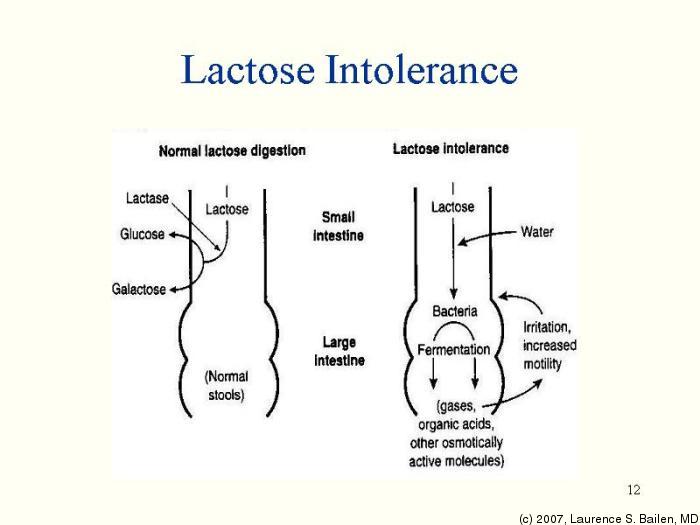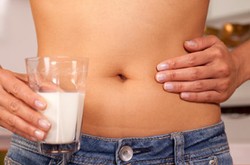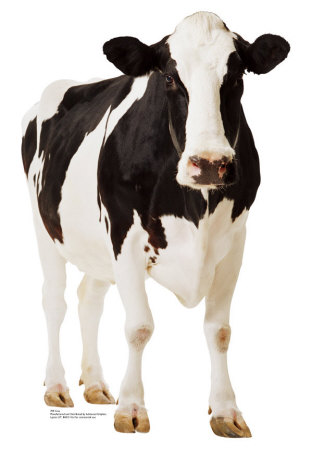Being Lactose Intolerant can be difficult. You have to know your own limits and embarrassingly explain to others why you can't eat cheese or drink milk. Being Lactose Intolerant myself, I know first hand how annoying it is to live with and how painful the wrong meal can be. Birthday parties in particular can really bite. When everyone's plates are are full of pizza and ice cream, I find myself with a nearly empty plate with a handful of potato chips, or whatever there is that I can digest without that crippling pain or that feeling like I'm literally going to explode. Paints a pretty picture, doesn't it? Well as the old saying goes, "if you can't beat 'em, join 'em." I can't beat Lactose Intolerance but I can live with it. The first step in dealing with it is knowing exactly what it is:

Understanding and Living with Lactose Intolerance
What is Lactose Intolerance? Is it a food allergy or digestive disorder? Why is there pain and other nasty symptoms? Most importantly, can it be cured?
What Is Lactose Intolerance?
It IS a Digestive Disorder
Humans are typically equipped with an an enzyme, lactase, located in the large intestine that digests lactose: a sugar found in milk and dairy products.
Lactose Intolerance is the inability to digest lactose due to a lack of lactase. It is not a food allergy, which effects the immune system.
The symptoms typically appear in teens in young adults. Around 30 million American adults have some degree of lactose intolerance by age 20. Premature babies are also prone to Lactose Intolerance. It is possible to develop intolerance over time. Partial intolerance is fairly common when the body only produces small amounts of lactase, and can eventually stop producing it all together.
- The picture below demonstrates the effect of lactose digested with and without lactase. The osmotic balance is thrown off, causing water to enter the large intestine, which then causes diarrhea. Without the lactase enzyme acting as a filter, what should be safe bacteria ends up fermenting and creating gas build up, which results in varying degrees of pain, from mild to severe.

Symptoms
Symptoms can occur 30 minutes to 2 hours after having dairy products. Large doses of dairy products may cause worse symptoms.
Symptoms include:
- Abdominal bloating
- Abdominal cramps
- Diarrhea
- Gas
- Nausea

Foods To Avoid
The easiest way to find out if you are Lactose Intolerant is to cut out dairy for a week and see if the above symptoms clear up. (Always consult a doctor if you are worried about your health.)
Most common things to avoid when you are Lactose Intolerant: Dairy Products including but not limited too...
- milk
- cheese
- ice cream
- creams and sauces containing milk/dairy
Most sufferers can ingest about a half cup worth of dairy and be okay but more than that tends to cause discomfort. Severity of symptoms vary with each individual so it is important to know your limits.
Foods to Help Replace Lost Nutrition
While its not healthy to cut out dairy entirely, here are a few things to help replace calcium, vitamin D, and protein:
- leafy greens
- canned salmon
- shrimp
- broccoli
- orange juice
Food Alternatives
These may cause less irritation but beware they do contain some percent of lactose:
- aged cheese
- yogurt
- frozen yogurt (good alternative to ice cream)
- goat milk
- soy milk
Enzyme Suppliments So You CAN Eat Dairy Products
Instead of giving up dairy, just take an ezyme suppliment
Lactaid is one of the best and most used brands for those who suffer from Lactose Intolerance. I LIVE off of Lactaid. They sell chewable pills that you take with your first bite, and they also sell real milk that does not contain lactose.
Living with Lactose Intolerance Isn't So Bad
It Can't Be "Cured" But It IS Manageable
While it can be irritating, understanding Lactose Intolerance and knowing whats best for you, (enzyme supplements or cutting out dairy) being Lactose Intolerant can be easily manageable- I was drinking a milkshake as I wrote this; its how I got the idea.
While Lactose Intolerance isn't something that needs to be monitored by your doctor, it is important to consult a physician if you have severe symptoms or symptoms that don't go away when giving up lactose or using an enzyme supplement.
 |
Are You Lactose Intolerant?
Sources
My life. ;)
Exlporatorium- Milk Makes Me Sick
Medicine Plus- Lactose Intolerance.
You might also like
The Vegetarian Chronicles: A 30 Day Challenge, Part 1After watching "Forks Over Knives," I've decided to challenge myself to trans...
Why I Shaved My HeadA month ago I shaved my head to support cancer patients and raise money for R...







 "Lone Wolf" Book Reviewon 01/02/2015
"Lone Wolf" Book Reviewon 01/02/2015
 Kaits Creations on Zazzleon 12/08/2014
Kaits Creations on Zazzleon 12/08/2014
 The Vegetarian Chronicles; Part 4: The Finaleon 11/03/2014
The Vegetarian Chronicles; Part 4: The Finaleon 11/03/2014
 The Korowai Cannibalson 10/24/2014
The Korowai Cannibalson 10/24/2014



Comments
Statistically speaking, most of people who are lactose intolerance can probably safely drink 1 cup (8 oz, 237 mL) of milk. Milk, yogurt, ice cream and foods with added lactose (protein powder for example) are the main items to avoid. I've also read, goat milk can be easier to tolerate.
Thanks for this Kaitlyn, it's interesting.